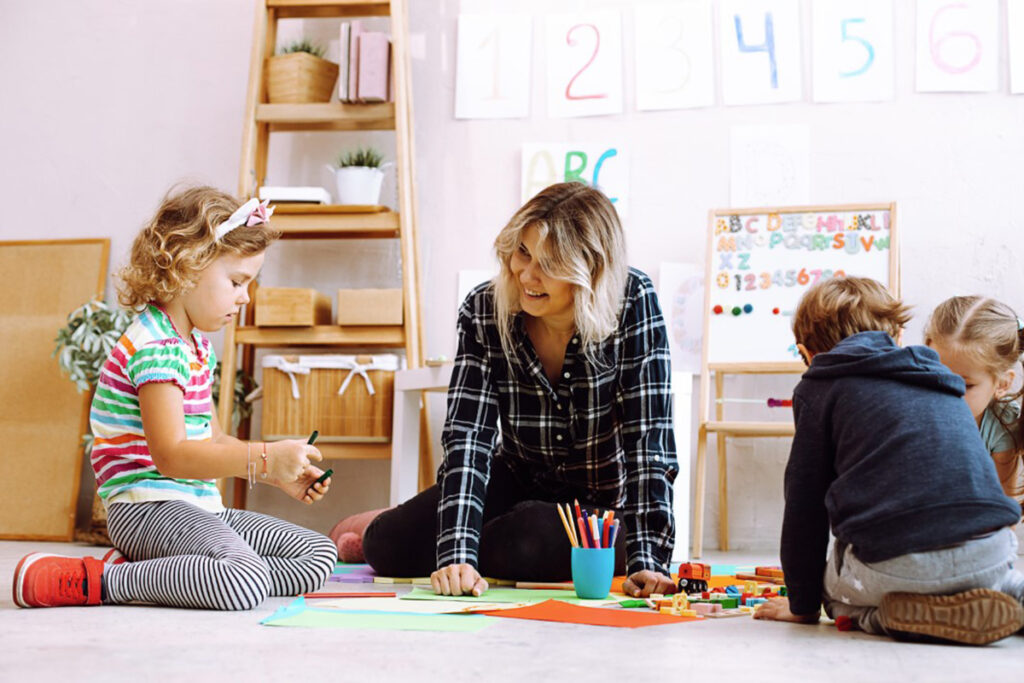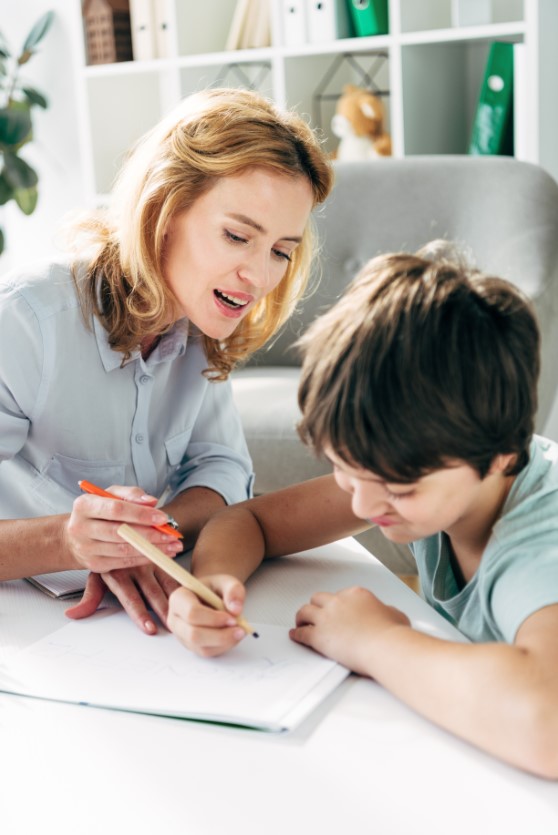ABA Therapy for Kids (Ages 2-12)
Applied Behavior Analysis is most effective for children diagnosed with ASD from 2 to 12 years old with symptoms from “mild” to “severe.” ABA therapy can help kids flourish by engaging on their level and enhancing outcomes through play.
At ABA Centers of Georgia, we recognize that every neurodivergent child has unique struggles and exceptional talents. Your child deserves much better than a cookie-cutter approach to therapy.

We personalize each intervention with an eye toward a child’s future goals and dreams as we promote participation in all aspects of their life. Unlike other providers, we believe in minimally intrusive programs encouraging untapped autonomy and self-discovery.
On average, ABA therapy hours range between 20 and 40 a week. Board Certified Behavior Analysts (BCBAs) design programs that capture critical data to understand a child’s experience. With this knowledge and expertise, they optimize autism therapy outcomes to improve essential behaviors (social skills, communication, and more) to help them advance through life.

Our certified ABA Professionals
Next, your child’s assigned Registered Behavior Technician (RBT) will work directly with them across multiple sessions. All our ABA professionals receive licensure through the Behavior Analyst Certification Board (or BACB).
For toddlers and pre-K, ABA therapy is often an all-day program for milestone development and school readiness. We aim to accommodate every family and their needs so no neurodivergent child is unsupported.
Your Personalized ABA Experience
Every ABA therapy program begins with a BCBA assessment, considering patterns and long-term goals. After spending time with your family to understand the challenges and dynamics, your BCBA will create an ABA therapy plan to meet everyone’s needs and improve your child’s life.
During these sessions, RBTs work with children and caregivers on essential skills, continually monitoring progress through review. Goals are adapted and, according to measurements in behavior, evolve to suit the client as they mature.
An official autism spectrum diagnosis is required to access ABA therapy services. For assistance with autism testing and the diagnostic process, contact us today.
ABA Therapy Options for Children Include:
- Autism Testing and Diagnosis Services
- In-Home ABA Therapy
- Parent and Caregiver Training
- Life, School, and Community Integration Skills
ABA Therapy Can Teach the Skills Children Need
Gross & Fine Motor Skills
Children with autism often struggle with body coordination and muscle development. ABA Therapy helps develop motor skills with activities like:
- Opening snacks or plastic containers and closing them
- Playing with Lego blocks
- Depositing coins into piggy banks
- Cutting shapes with scissors
- Playing with putty, clay, or slime
- Watering plants with a squeeze bottle
- Playing with marbles
Basic Reading/Writing
ABA Therapy can improve academic performance by promoting foundational reading and writing skills. These activities include:
- Tracing over lines or activities that include copying
- Doodling or scribbling
- Copying
- Coloring
Social Interactions
Our program focuses on nurturing communication skills for your child to thrive, such as:
- Engaging in social pretend play, like preparing a meal or feeding animal toys
- Encouraging turn-taking and the sharing of toys while playing
- Exploring reactions, personal choices, and expressing their interests through communication
Visual/Perception
We foster visual and perception skills, a cornerstone of intelligence and development, by incorporating activities like:
- Assembling puzzles
- Matching identical objects
- Memory games for improved retention of visual information
- Search games like “Where’s Waldo?” with hidden objects in busy pictures
- Recognizing and comparing object similarities
The Role of Positive Reinforcement in ABA Therapy for Children
Positive reinforcement is a critical element of ABA Therapy. When a child demonstrates healthy behaviors, a reward follows, and they are more likely to repeat it. This system creates new patterns over time and encourages positive change.
During sessions, a therapist identifies a goal behavior. Each time the child successfully follows through, they receive something meaningful. Examples of rewards include:
- Sincere praise
- A toy or a book
- Playing a video game or watching a video
- Access to the playground, a park, or a favorite food
With continued practice, the child will progress and replace counterproductive, inappropriate behavior with skills that will aid them throughout their lives.

ABA Centers of Georgia focuses on understanding your child’s behavior and your family’s needs. Regardless of how neurodiversity touches your home, our ABA therapy programs for children offer optimal opportunities for everyone to lead full, independent, and enriching lives.
For more information about your options for autism care, call us at (855) 929-5058 to schedule a complimentary, zero-obligation consultation with an experienced team member.


